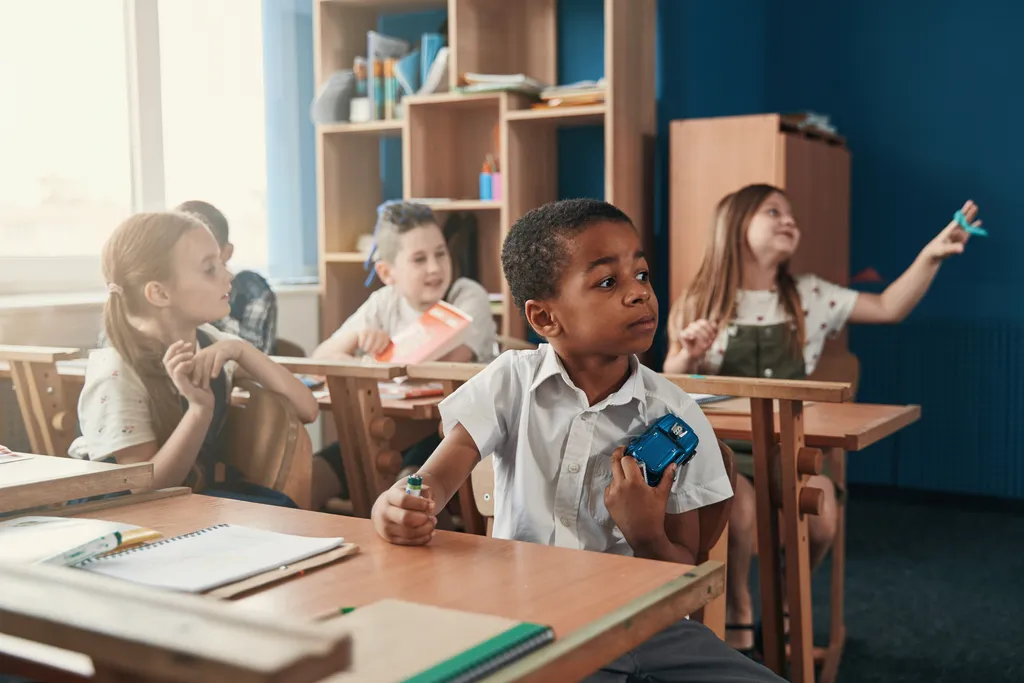Introduction
Are you prepared to embark on an intellectual and exploratory journey? This journal allows individuals to explore the latest technological advancements, delve into the enigmatic realms of art and culture, and strive for personal growth. It serves as a portal to an infinite world of inquiry and action. In the present discourse, we will explore the boundless expanse of concepts and information, focusing on the subject of Financial Literacy for Kids. While traversing the vast expanse of information, we shall examine distinct viewpoints, impart practical advice, and delve into thought-provoking concepts that provoke contemplation.
Why Financial Literacy Matters
It’s more important than ever to know how to handle money. Understanding and managing money is an important life skill in a world that is becoming more complicated and linked. It gives people the knowledge they need to make smart choices about their money, stay out of debt, save for the future, and spend wisely. People are at a huge disadvantage regarding financial problems and economic uncertainty if they need to learn how to handle their money. Teaching kids about money from a young age also sets them up for a safe and successful future with money. Mastering the art of financial well-being means making sure that people can confidently and successfully navigate the financial world. It’s about more than just knowing numbers.
Starting Early: The Importance of Teaching Kids About Money
It’s important to teach kids about money early on. Their thoughts are still open, so now is a good time to teach them about money and responsibility. As early as possible, teaching kids about money gives them a solid base for learning how to budget, save, and spend. This early schooling gives kids the skills they’ll need to make smart money choices throughout their lives and will make their futures more financially stable.
Teaching Basic Money Concepts to Children
A very important part of teaching kids about money is teaching them the basics. Learning how to value money, spend it wisely, and save for the future is important. Kids learn important money management skills by being exposed to ideas like working, saving, spending, and sharing. These early lessons teach them how to handle money wisely and help them build a strong financial base. Parents can make learning about money fun and useful for their kids by using real-life examples and having age-appropriate conversations. By doing this, kids learn early on how important it is to understand money, which sets them on the path to financial success.
Setting Up Savings Accounts for Kids
Setting up savings accounts for kids is a good way to teach them about money. Students learn about interest and how money can grow over time. It also gives them an introduction to banks. These accounts are a useful way to show why saving money is important. It also teaches people how to save money for goals and wants in the future. Parents can let their kids help manage these accounts, which will teach them about money management from a young age and set them up for a financially stable future.
Allowance and Money Management
Giving kids allowances and showing them how to handle money is important in teaching them to be financially responsible. Giving kids an allowance lets them learn how to make a budget, save money, and decide how to spend their income. Teaching kids about money and how to spend it wisely through play is a great way to get them involved. Parents give kids the power to learn from their money choices and understand the value of money by letting them handle their allowances. Teaching kids about money at a young age gives them useful skills that will help them as adults and build their sense of duty and independence with money.
Budgeting for Kids
A very important part of teaching kids about money is how to make a budget. All parts of this are helping kids understand money, spending, and how important it is to live within their means. Kids learn to spend their money wisely, set spending priorities, and save for future goals by making budgets. It teaches you how to manage your money and keeps you from spending too much. These early lessons teach kids how to handle their money responsibly and give them the knowledge they’ll need to make smart financial choices as they age. Overall, teaching kids how to make a budget is a great way to prepare them to be financially independent.
Teaching Kids About Credit and Debt
A big part of teaching kids about money is about loans and debt. It means teaching them how credit works, stressing how important it is to use credit responsibly, and talking about the possible outcomes of being in debt. By teaching these ideas to kids at a young age, you give them the information and skills they need to borrow and lend money responsibly. This information helps them stay out of debt and make smart financial choices as adults. Kids who learn about credit and debt will be better prepared to deal with money problems and keep their finances in good shape.
Investing Basics for Children
A good way to help kids learn about money is to show them how to save. They learn how to make their money grow and how important it is to study before putting money into something. Kids might be unable to buy complicated things, but they can understand simple things like interest that builds over time and the stock market. These early lessons get people interested in long-term money planning and teach them how to save money to spend. Parents who teach their kids how to save money give them the skills to use it wisely and prepare them for a future without debt.
Teaching Kids to Differentiate Needs from Wants
A basic financial skill that kids should learn is how to tell the difference between needs and wants. It helps kids understand the difference between things they need and want. By teaching kids this early on, you can help them understand how important it is to spend their money wisely and put their needs ahead of their wants. This information helps people make smart financial choices and handle their money responsibly. These lessons teach kids how to use their money wisely and prepare them for a future where they can reach their financial goals without spending money they don’t need to. In general, this skill helps them become financially stable and independent.
Financial Literacy and Academic Performance
It’s interesting to learn that having good financial sense and academic success are tied together. According to several studies, children who receive financial education perform better in math and have a deeper comprehension of how economies function. You can use the money skills you learn in many different school areas because they teach you to think critically and solve problems. Children will be more interested in learning and more likely to do well in school if taught how to handle money in the real world. Kids need to understand money issues and be able to make smart choices. It can make kids do better in school, which can help them grow up.
Life Skills and Decision-Making
Having good money sense isn’t just about money; it’s also about making choices and living a good life. Teaching kids how to handle their money allows them to think critically, solve problems, and make good choices. These skills are useful in many areas of their lives, not just when it comes to money. Financial education helps people make good decisions, whether setting priorities, weighing their choices, or planning for the future. This wider use of life skills makes them better prepared for the challenges of adulthood and helps them become well-rounded, responsible, and capable people.
Financial Literacy and Future Success
Knowing how to handle money is a key indicator of future success. Kids who learn a lot about managing money, saving, investing, and being responsible with money are more likely to live independently as adults. These people are less likely to get stuck in debt and better equipped to deal with sudden money problems. People who know much about money are also more likely to set and reach their financial goals, whether buying a house, starting a business, or saving for retirement. Knowing about money helps people have a future where they are financially stable, independent, and able to achieve their goals confidently.
Parental Involvement
As a parent, your involvement in teaching financial literacy is invaluable. Your guidance and support are crucial in helping your kids build a strong financial foundation. Having parents help teach kids about money is very helpful. It’s not just the school’s job to teach these things; parents also need to do a lot to help. Parents involved in their kids’ financial education can help them learn by giving real-life examples, advice, and support. This kind of participation helps people learn more about money and see how to handle their money in real life. Working together to build a solid cash base strengthens the bond between parent and child. In the end, parental participation is the best way to teach kids about money and how to be responsible with it in life.
Conclusion
Finally, teaching kids about money is a very smart thing to do because it pays off in the long run. Financial education gives them skills that help them in more areas than just handling their money, like making decisions, managing their time, and doing well in school. We set our kids up for financial security and freedom by teaching them about budgeting, savings, and investments and telling the difference between needs and wants early on.
Along with parental input, teaching kids about credit and debt ensures they are ready to deal with the complicated world of money. The link between knowing about money and doing well in school shows how important it is for kids to learn about money.
As parents and teachers, it is our job to lead the next generation to a better and more successful future, where they are not only financially stable but also able to make smart choices that affect every part of their lives. Knowing how to handle money is the key to a lifetime of success and possibilities.
FAQs
Q1. What is the best age to start teaching kids about financial literacy?
There are only so many right answers, but starting as early as age 5 or 6 is a good idea.
Q2. How can I make financial education fun for my children?
Fun ways to learn about money are through games, tasks for saving, and real-life examples.
Q3. What are the long-term benefits of teaching kids about credit and debt?
Teaching kids how to use credit wisely can keep them out of financial trouble and set them up for a bright financial future.
Q4. Is financial literacy only about money, or does it include other life skills?
Being financially literate means knowing how to make choices, think critically, and solve problems.
Q5. What is the role of schools in teaching financial literacy?
Many schools have programs to teach kids about money, but parents must help their kids remember these lessons at home.





